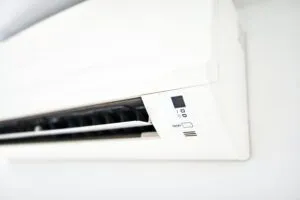
When it comes to maintaining your home’s HVAC system, it may seem necessary to learn a new language with all of the different abbreviations used. At Ambient Edge, we are always happy to help you choose the best system and maintain it properly.
All you have to do is call our Las Vegas air conditioning repair team, especially when you have questions about EER, IEER, SEER, IPLV, and HSPF.
Efficiency and Your HVAC System
Most people want to choose a heating and cooling system that keeps their home comfortable throughout the year, and that often means ensuring that the system is properly sized.
At the same time, though, you do not want to overspend on the energy it costs to heat and cool your home. That is where the following energy efficiency statuses come into play.
The Department of Energy put these energy efficiency labels in place in order to help provide an equal way of comparing one system and product to the next, allowing property owners to make better decisions about what type of system is best suited for their needs.
That does not always make it easy to know what the terms mean or how they play a role in the actual results you get. That is where our technicians come into play.
When you contact us for a new heating and cooling system or because you are unsure of what something on your HVAC means, we are happy to offer insight and guidance to you.
However, we also want to help you know the details because educating you is a big part of what we do. Here are some of the HVAC ratings explained:
EER
Energy Efficiency Ratio (EER) is one of the most common components you will see mentioned and it shows the efficiency of the system when it is operating at its peak load capacity. It is the power input in Watts and is calculated at 95/75 degrees DB/WB. In short, it is the ratio of the cooling capacity to the unit.
IEER
Integrated Energy Efficiency Ratio (IEER) is a more accurate representation of the actual efficiency you will get from your heating and cooling system.
To create this figure, efficiencies are gathered at various loads, based on different temperatures, and then given weights to obtain an overall efficiency value. The peak load period will only count for about two percent of the overall value.
SEER
Seasonal Energy Efficiency Ratio (SEER) is another commonly used factor to determine efficiency. It is much like IEER above, but it is designed to be more representative of residential equipment compared to commercial systems. In all cases, it is another factor to compare.
IPLV
The Integrated Part Load Value (IPLV) is not often used when it comes to traditional residential equipment but instead for chillers. It is calculated in much the same way as IEER and provides a real-world efficiency comparison tool. It is worth taking a closer look at some systems.
How to Choose the Best Heating and Cooling System for Your Home
All of that information may provide you with what you need to know to make a decision about which heating and cooling system is best suited for your home (right?) Most likely, that is not enough to make the best decision about which type of system you should buy.
That is why we encourage our clients to reach out to our certified technicians to get more insight and information into the type of system they have and how it may work for their needs, including comparisons such as:
- Name brand: While the specific name brand may not be a big factor when considering which heating and cooling system to invest in, it allows our team to learn about the repair history and the overall efficiency standards you can expect from this company.
- Warranty: Having a warranty is one of the most important factors to consider when you choose a system like this, and the very best systems have quality warranties that last for decades.
- Overall function and fit: Does the system actually fit your home and your home’s needs? An oversized or undersized unit is not ideal and would lead to a higher level of cost in nearly all situations. Getting the right size is critical.
When you work with our team at Ambient Edge, we will take into consideration many other factors before recommending any specific system for your home.
Remember that you need a system that is suitable for your environment and the way you use your space, and that is not always something that the box can tell you. Instead, let us provide you with a full inspection and fitting.
Does Energy Efficiency Really Matter?
One of the most important factors to consider when purchasing a new heating and cooling system is energy efficiency ratings. There are multiple reasons to make this the starting point in your consideration of the best heating and cooling system for your home. Some of those reasons include:
- It saves you money on energy costs throughout the year. There is no reason to overspend just to get your home to a comfortable level.
- It impacts your home’s value. The more efficient your system is, the higher the value it has to those who may wish to purchase your home at some point in the future.
- Efficiency plays a role in reliability. Most property owners want to choose a system that can provide them with highly reliable comfort throughout the year.
If your home is not comfortable, contact us. If your system is not running the way it should, we can help you. Do not wait too long to contact our team for guidance.
Set Up a Consultation and an Appointment Now
Call Ambient Edge today for a quote for a new heating and cooling system. Count on our team to provide you with the best system with the highest level of functionality possible. We are happy to offer a free estimate.


